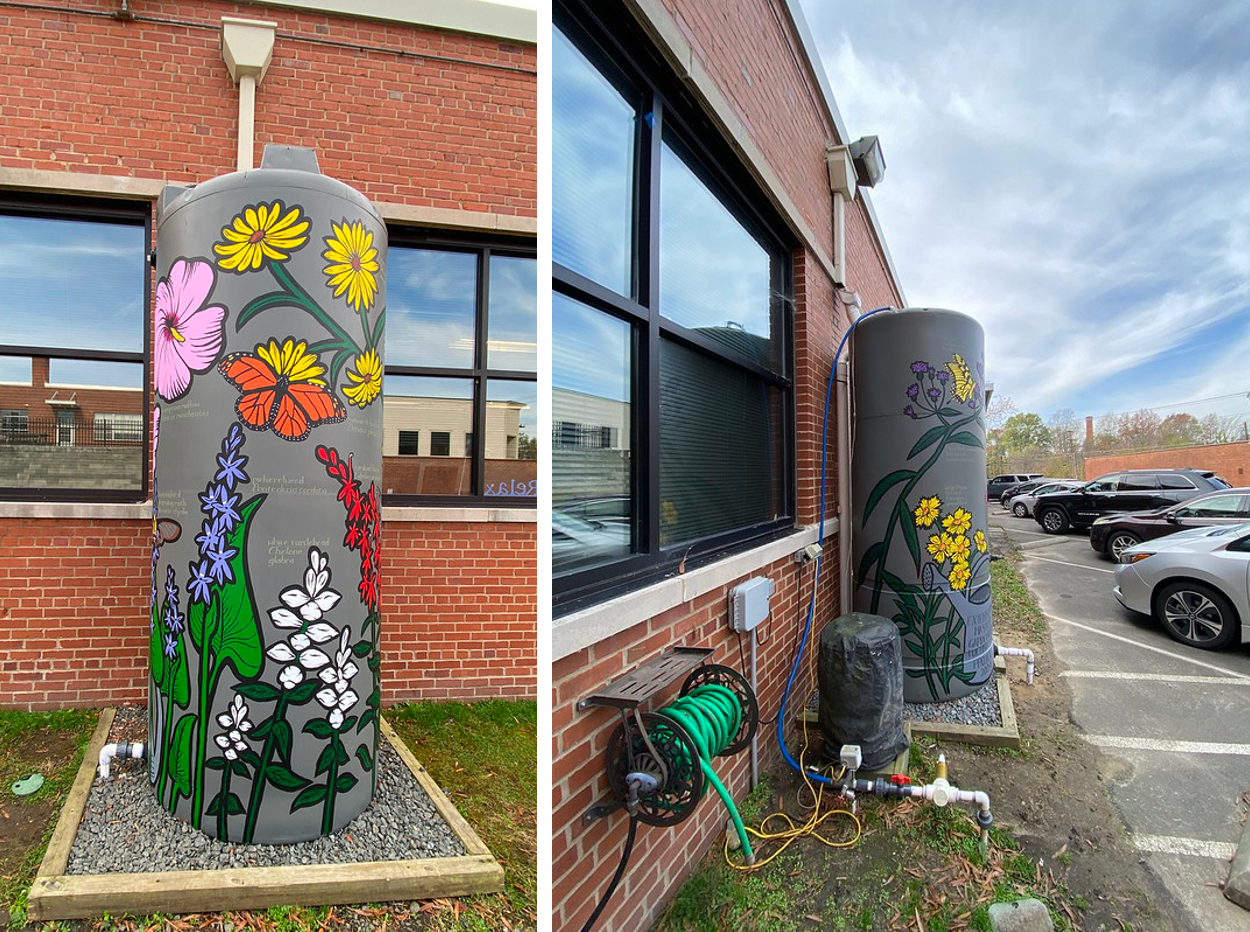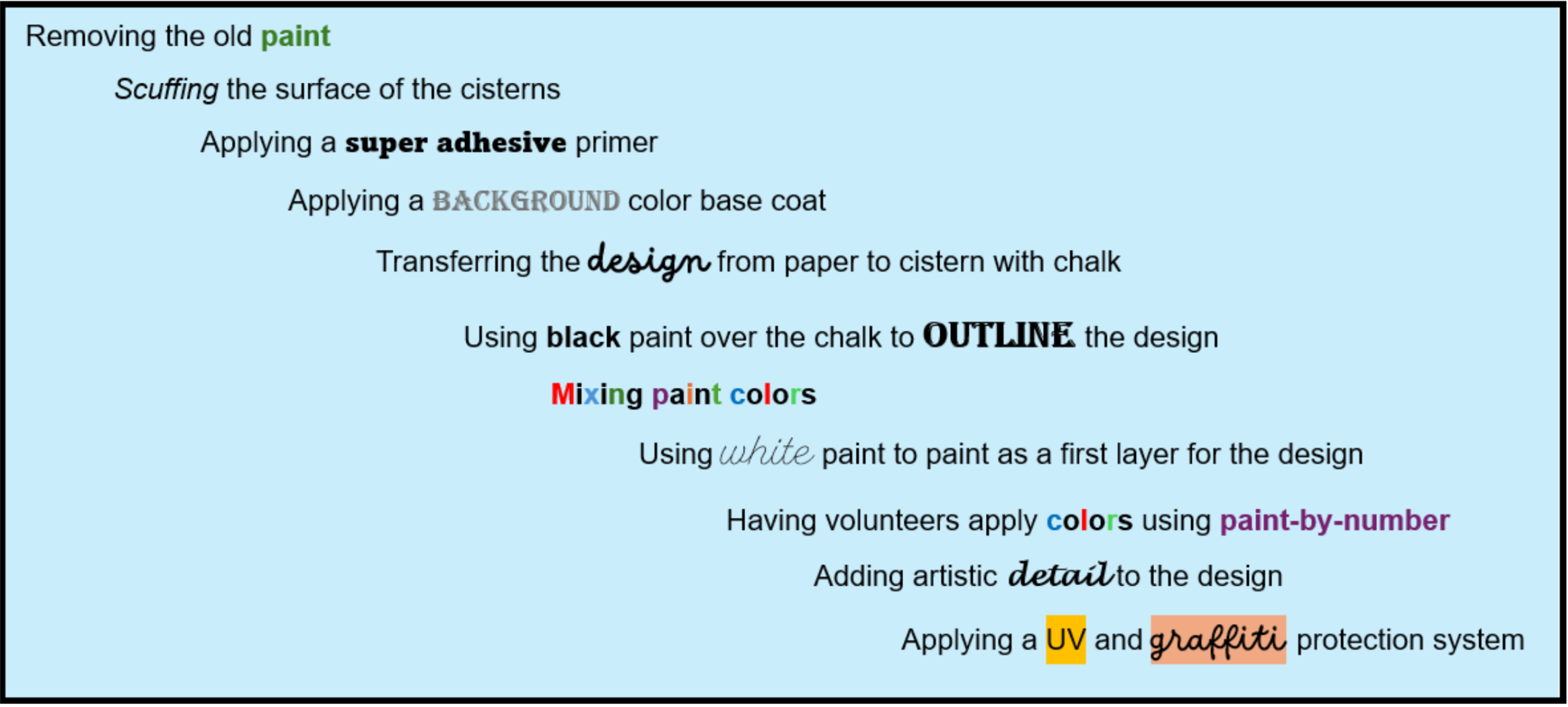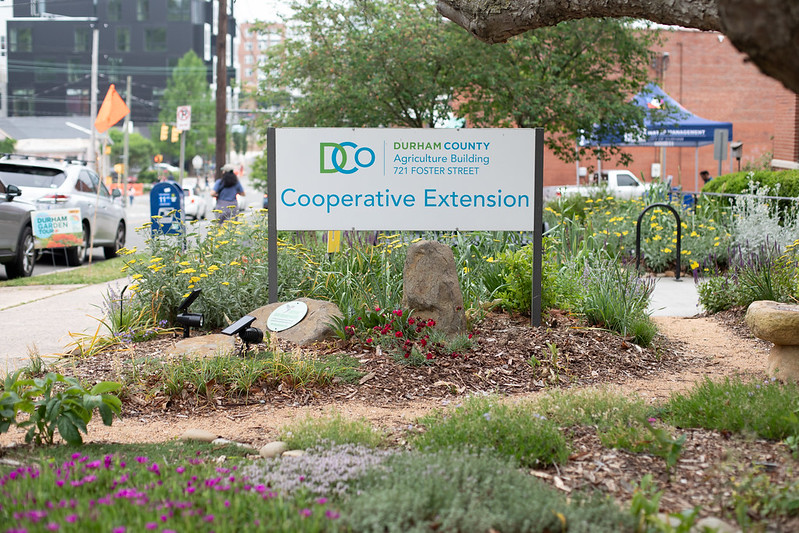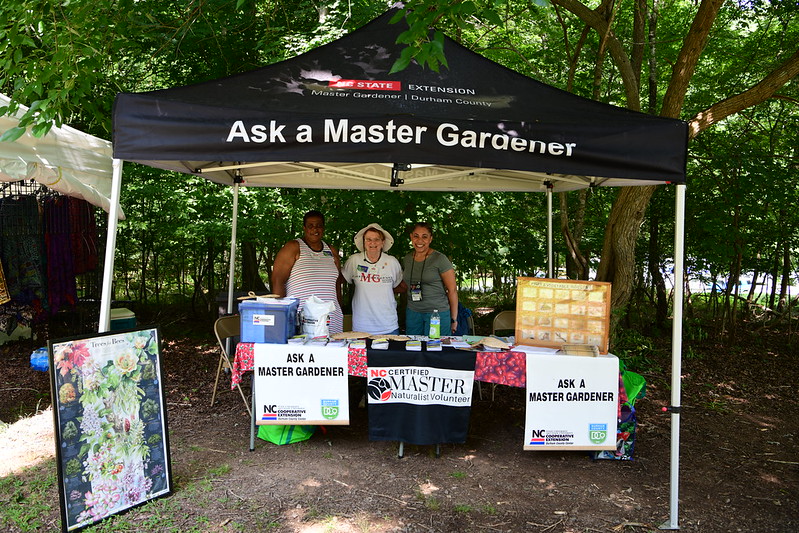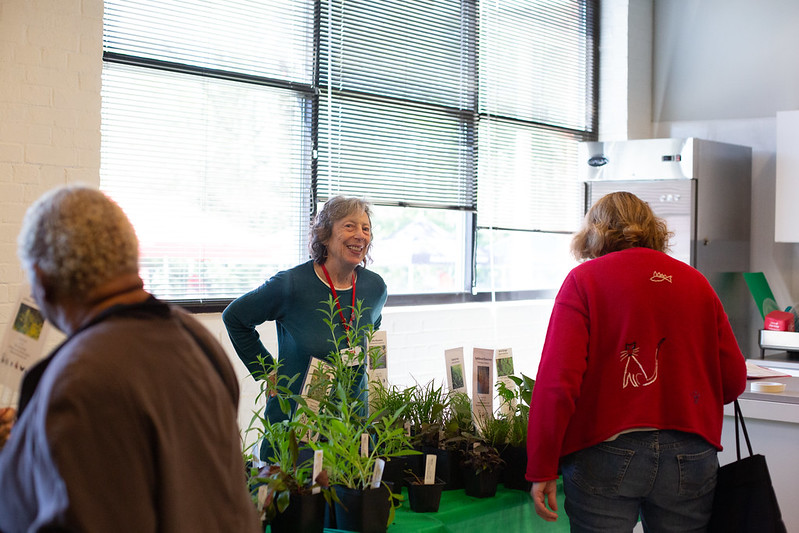The Cisterns: Extension Master Gardener volunteers of Durham County Demonstration Garden and Cistern Project
go.ncsu.edu/readext?1030243
en Español / em Português
El inglés es el idioma de control de esta página. En la medida en que haya algún conflicto entre la traducción al inglés y la traducción, el inglés prevalece.
Al hacer clic en el enlace de traducción se activa un servicio de traducción gratuito para convertir la página al español. Al igual que con cualquier traducción por Internet, la conversión no es sensible al contexto y puede que no traduzca el texto en su significado original. NC State Extension no garantiza la exactitud del texto traducido. Por favor, tenga en cuenta que algunas aplicaciones y/o servicios pueden no funcionar como se espera cuando se traducen.
Português
Inglês é o idioma de controle desta página. Na medida que haja algum conflito entre o texto original em Inglês e a tradução, o Inglês prevalece.
Ao clicar no link de tradução, um serviço gratuito de tradução será ativado para converter a página para o Português. Como em qualquer tradução pela internet, a conversão não é sensivel ao contexto e pode não ocorrer a tradução para o significado orginal. O serviço de Extensão da Carolina do Norte (NC State Extension) não garante a exatidão do texto traduzido. Por favor, observe que algumas funções ou serviços podem não funcionar como esperado após a tradução.
English
English is the controlling language of this page. To the extent there is any conflict between the English text and the translation, English controls.
Clicking on the translation link activates a free translation service to convert the page to Spanish. As with any Internet translation, the conversion is not context-sensitive and may not translate the text to its original meaning. NC State Extension does not guarantee the accuracy of the translated text. Please note that some applications and/or services may not function as expected when translated.
Collapse ▲Welcome to our Durham County Extension Master Gardener volunteer (EMGV) Demonstration Garden and Cistern Project Resources! We’re excited about the progress we’ve made in the last several years and want to highlight what we have to offer in this area.
Table of Contents
- Durham EMGV Cistern Project
- Cisterns and Irrigation – A Primer
- Design Decisions – Plants and Pollinators Featured
- Dave Milkereit – Mural Artist
- The Painting Project – Start to Finish
- Durham County EMGV Demonstration Garden
- Master Gardeners: Brief History and Purpose
- Additional Resources
Durham EMGV Cistern Project
The Durham County EMGV Demonstration Garden, located in front of the Durham Extension building on Foster Street, spans more than 3,000 square feet. In 2019, Extension Master Gardener volunteers, together with leadership from our Extension Agent, set about redesigning the Demo Garden. As part of this process a commitment was made to collect our own rainwater to use for watering the garden rather than relying on city water. The water collection vessels, known as cisterns, are located on the north side of the Extension Office. Over the years, they have aged and become less attractive. Our project was to use paint to brighten them up and at the same time fulfill our goals as Master Gardeners to provide education to the public about native plants and pollinators. Click here to learn more about this project.
Our goals for this Cistern Painting Project were to:
- Provide a more visually appealing, welcoming, space for individuals visiting the Extension Office at 721 Foster Street.
- Create an opportunity to educate the public about native wetland and garden plants via the cisterns and the link to this website.
- Introduce the public to the Demonstration Garden and the work of the Extension Master Gardener volunteers in Durham County.
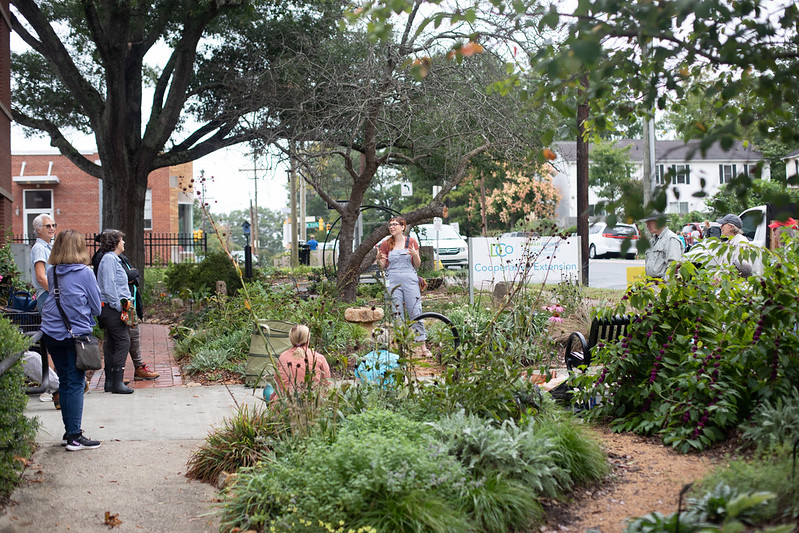 Ashley Troth, Extension Agent teaching Master Gardener volunteers about stem trimming in the Demonstration Garden 9/2024. Photo by Allie Mullin.
Ashley Troth, Extension Agent teaching Master Gardener volunteers about stem trimming in the Demonstration Garden 9/2024. Photo by Allie Mullin.
 Before and after pictures of the cisterns on the north side of the Extension Building at 721 Foster Street, and acknowledgement of Dave Milkereit (Milky), the artist for this project and the Master Gardener volunteers who worked on this cistern redesign project.
Before and after pictures of the cisterns on the north side of the Extension Building at 721 Foster Street, and acknowledgement of Dave Milkereit (Milky), the artist for this project and the Master Gardener volunteers who worked on this cistern redesign project.
Cisterns and Irrigation – A Primer
The cisterns are large plastic receptacles that collect and store rainwater from the roof of the building. The water is then filtered and pumped to the gardens in the front of the building. It is routed by a series of pipes and valves to provide irrigation for all of the areas of our Demonstration Garden as well as for the bird bath. The first cistern was added in 2008. As the Demonstration Garden grew, the water needs increased as well. The Master Gardener class of 2019 donated the second cistern to accommodate this. The two cisterns are connected underground by PVC piping. Mike Dupree, the Agribusiness & Environmental Services Manager with the Durham County Soil & Water Conservation District, consulted in 2020 to help design and install the system. Rigo Rodriguez from Falling Rain Irrigation was contracted in 2022 to maintain the system and install all of the drip lines in the six beds.
To learn more details about the irrigation system, click here.
Design Decisions – Plants and Pollinators Featured
Our design criteria included showing plants, insects and birds from both swamp or wetland areas as well as garden or prairie environments, highlighting the importance of the relationships between our native plants and pollinators. In addition, we wanted to underscore the importance of the common and scientific names of the plants and pollinators displayed on the cisterns, providing important and fun details about each of them.
As you face the cisterns you’ll find the left cistern features native plants and pollinators for gardens, while the cistern to your right highlights native plants and pollinators found in wetlands. By clicking here, you will find more information about each plant you see along with a link to much more information in the North Carolina Extension Gardener Plant Toolbox, a site managed and maintained by NC State and N.C. A&T State Universities that includes detailed descriptions and photographs of 4,717 plants that grow in and around North Carolina. You’ll also see information about each pollinator, with links to additional information from either the iNaturalist website or Cornell Lab of Ornithology’s site called All About Birds.
Dave Milkereit – Mural Artist
The opportunity to talk to people about plants and gardening drew Dave to the Master Gardener Program in 2019. Adding art to the mix has been a huge bonus. Dave first got into art when he was confronted with painting his off-white front hallway for the fourth time. To better hide handprints, paw prints, ketchup stains, and tire marks, he got creative with color and texture and found his inner artist. Since then, his love of plants and painting meet on canvas, walls, ceilings, and now cisterns, in whimsical compositions of color. Art is a great counterbalance to Dave’s big-kid job at the City of Durham, where he works on stormwater issues. Dave signs his work “Milky,” a childhood nickname, from a time of curiosity and seeing the world for the first time.
The Painting Project – Start to Finish
As the project commenced, Extension Agent Ashley Troth, Project Organizer Lisa Nadler and Artist Dave Milkereit were joined by eleven Master Gardeners to transition the unappealing surfaces of the cisterns into beautiful, educational, works of art.
The steps we took included:
Want to know more details about each of these steps to get from the starting place (left hand photo below) to the final work of art (photo on the right)? Click here.
Durham County EMGV Demonstration Garden
The Durham County EMGV Demonstration Garden operates as a showcase for research-based gardening techniques suited for urban settings. An outstanding team of Extension Master Gardener Volunteers with leadership from our Extension Agent started redesigning the Demo Garden in 2019 with the vision of becoming a unique and widely recognized urban garden that engages and educates visitors through innovative displays, programs, and sustainable gardening practices.
From a historical perspective, Demonstration Gardens have been a staple of Master Gardener programs within Extension Services. Beginning around 1978, as Master Gardener programs were established in 80 North Carolina counties, they expanded by creating demonstration and teaching gardens.
In Durham, the first Demonstration Garden was started in 2000 at the Extension Building on 721 Foster Street. At that time, Extension Agent Paul McKenzie, approached Lissa Lutz and asked her if she would be willing to chair a new effort he called the “Curb Appeal Committee.” By 2006, the effort had evolved into the Demonstration Landscape Committee, with a mission to showcase plants that thrive in Durham’s climate and ensure something was blooming and on display throughout the seasons.
Over the years, various Master Gardeners, including Holly Williams, Wanda Crutchfield, Jean Findlay, Girish Bhatt, and Joan Barber, have chaired or co-chaired the Demonstration Garden Committee.They received leadership and support from Extension Agents, including Michelle Wallace, Delphine Sellers, Cheralyn Berry, and since 2018, Ashley Troth, helping us to transition to where we are today. Click here to learn more about the history of our demonstration garden and its current status.
Extension Master Gardeners leading a tour of the Demonstration Garden. Photos by Allie Mullin.
Master Gardeners: Brief History and Purpose
Durham County Extension Master Gardener Volunteers (EMGVs) number around 75-100 trained volunteers. Master Gardeners work under the supervision of Dr. Ashley Troth, our Durham County Agriculture Extension Agent for Consumer and Commercial Ornamental Horticulture. We share research based advice with local gardeners and have played a major role in the creation of Briggs Avenue Community Garden. Master Gardeners also maintain a blog, https://durhammastergardeners.com/about/, a monthly Newsletter and a Demonstration Garden. Each spring the Durham EMGVs hold a plant sale to raise money for programs and projects. Master Gardeners answer gardening questions from the public, in person at our office at 721 Foster Street in Durham, through phone, 919-560-0528, or email, durhammastergardener@gmail.com. Our office hours are Monday – Friday, 9-4. We are also present at many local events answering questions at the “Ask A Master Gardener” table.
Learn more about the Master Gardener program here.
Extension Master Gardeners answering questions at the Festival for the Eno (top) and their annual Plant Festival (bottom). Photos by Wanda Crutchfield and Allie Mullin.
Additional Resources
We have many additional resources to help you learn more about a variety of topics. Please click here to get to an extensive resource list.
Many thanks to Lisa Nadler and Marya McNeish, EMGVs of Durham County, for compiling this excellent reference! All photos by Lisa Nadler, unless otherwise noted.





